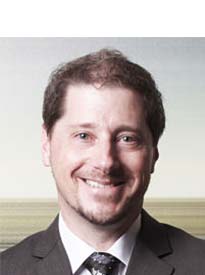This November marks the 7th annual Financial Literacy Month in Canada. As such, much discussion will take place leading up to, and during, the month on Canadians’ financial literacy levels and the impact of Canadians’ understanding of financial matters. As experts, financial planners need to play an increasingly significant role in improving Canadians’ understanding of financial concepts as well as have the appropriate professional skills to increase the likelihood that clients will act on the appropriate advice provided.
With this in mind, the Financial Planning Standards Council (FPSC) will be showcasing the newly released Financial Planning Body of Knowledge (FP-BoK) during this year’s Financial Planning Week at the Celebration of the Profession Dinner in Toronto on Nov. 21. Canada, being the first country to develop an authoritative compendium of all the detailed knowledge expected of a professional financial planner, has reason to celebrate.
The FP-BoK comprises 12 knowledge topics, each encompassing detailed statements of the knowledge expected of financial planners in all areas of financial planning, along with accompanying case studies that illustrate the application of knowledge in each topic.
The 12 topics included in the FP-BoK specifically cover: the financial planning profession and regulation in the financial services sector; financial analysis; credit and debt; registered retirement plans; government benefit plans; registered education and disability plans; economics; investments; taxation; law; insurance; and human behaviour.
The FP-BoK also provides the underpinning for the FPSC Competency Profile, which sets out the competencies expected of professional financial planners in all key financial planning areas. This includes fundamental financial planning practices and the specific financial planning areas of: financial management, investment planning, retirement planning, tax planning, insurance and risk management, estate planning and legal aspects.
The intention of the FP-BoK is also to guide the development and delivery of educational content for FPSC-approved educators that will prepare the next generation of financial planners. Specifically, the FP-BoK assists students and those entering the profession in understanding the true nature of financial planning; offers firms a tool to define the expectations of their professional planners; and helps existing financial planners in their ability to remain current in their practice.
Read: FPSC introduces Financial Planning Body of Knowledge
Knowledge about human behaviour, decision-making and relationships is important for the demonstration of professional skills — especially as these skills will become more and more important in helping financial planners differentiate themselves from technology such as robo-advisors. In fact, the next generation of financial planners will be expected to possess knowledge related to how the brain works and makes decisions, including the values, heuristics, emotions and disorders related to money that an individual brings to the decision-making process. All professionals will need to understand the stages of individual change and what may motivate or inhibit an individual in dealing with change. Professionals will also need to understand how their actions and communications may garner or hinder trust. Financial professionals will be no different.
It’s also not enough for financial planners to possess the highest degree of technical knowledge; they must also be able to communicate in a manner that clients can understand, absorb and convert advice into appropriate action. Understanding clients includes more than understanding their financial situation and their future hopes and dreams. It includes understanding what drives each client and how they actually make decisions. Professional financial planners of the future will have to demonstrate their competence in these critical professional skills.
With the rise of the digital age, increased regulation and the shift toward professional financial planning, the bar has changed for what it means to be a professional financial planner. Although change won’t come easy, the opportunity to be part of a rewarding profession that will do more than any other to impact the lives of Canadians and their financial capability positively has never been greater.
